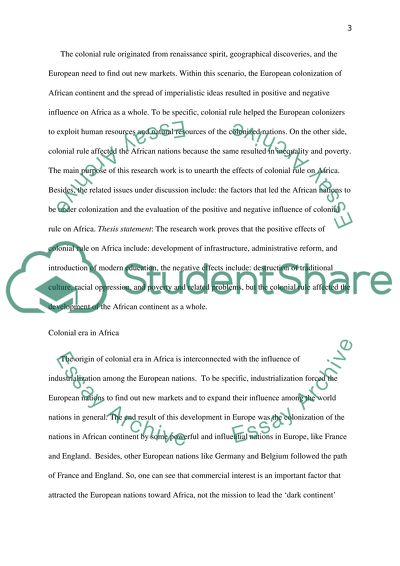Cite this document
(“Effects of Colonial Rule on Africa Research Paper”, n.d.)
Retrieved from https://studentshare.org/sociology/1495871-effects-of-colonial-rule-on-africa
Retrieved from https://studentshare.org/sociology/1495871-effects-of-colonial-rule-on-africa
(Effects of Colonial Rule on Africa Research Paper)
https://studentshare.org/sociology/1495871-effects-of-colonial-rule-on-africa.
https://studentshare.org/sociology/1495871-effects-of-colonial-rule-on-africa.
“Effects of Colonial Rule on Africa Research Paper”, n.d. https://studentshare.org/sociology/1495871-effects-of-colonial-rule-on-africa.


